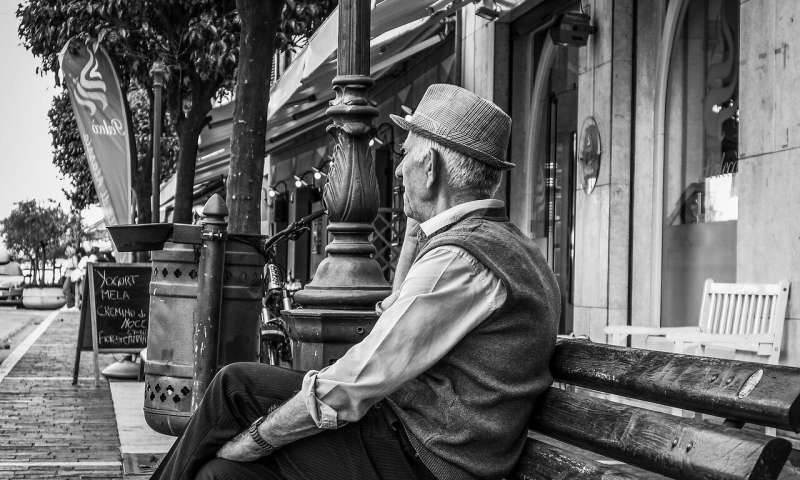Credit: Pixabay/CC0 Public Domain
Because of COVID-19's social distancing safety precautions, many people are not only living in fear of the virus daily, but many are feeling isolated and alone. UConn Today sat down with the Chair of the Department of Psychiatry in the UConn School of Medicine, Dr. David C. Steffens, to learn about the potential health risks of loneliness, especially during the holiday season, and what you can do to improve social connections not only for yourself, but also for your loved ones, especially higher-risk older adults.
Dr. Steffens, as humans, are we built to be physically or mentally quarantined for extended periods of time?
Thanks for the question, as it gets right to the heart of the issue. Humans are fundamentally social creatures. We are "built" to depend on one another, to care for and be cared for by others, and to seek out others to avoid prolonged isolation.
How would you characterize the impact of the pandemic on our psyches?
The effects of social isolation from the pandemic are negative and severe. If you think about it, we use solitary confinement in the prison system to punish people, to tame them, and to break their spirit. Reports from this pandemic, and other pandemics this century, show higher levels of distress, more despair, and more suicidal thoughts in older adults who are more isolated, especially those living alone.
What can significant loneliness during the pandemic and the holidays lead to?
In older people, loneliness can lead to clinical depression and anxiety, which in turn can affect physical health. To reach a point of loneliness, this means that one has moved from a mindset of "alone but not lonely" to a mindset of disconnection and despair in the face of one's aloneness. These thoughts and feelings are often precursors to depression, anxiety, and suicidal thoughts.
Who is most at risk for the consequences of loneliness?
Generally, anyone who doesn't have a wide social network available to them that they can tap into. In the U.S., this includes people living alone who are older, disabled, or with current mental illnesses such as depression, social anxiety, and psychosis. Often, older adults are widowed, and depend on churches and other social groups whose services may be limited during the pandemic.
What recommendations do you have for an older adult who may feel lonely and isolated during the pandemic and holidays?
First, I would say that it's important to let people know there are steps they can take to combat feelings of loneliness and isolation. Reaching out on a regular basis to family and friends, even for a short call or "Facetime visit" can do wonders for alleviating loneliness. Many religious groups have their services livestreamed and recorded, so if an older person needs help with that, they can easily reach out to have someone walk them through the processes. Beyond these measures, older adults who don't have mobility issues can and should spend some time outside, so long as their walk is free of ice. They can wear a mask and socially distance while they chat with neighbors.
Is turning to social media to connect the answer to loneliness?
It's one answer, but for folks who aren't tech-savvy or already connected to social media, they may need some help. And this is where children, grandchildren, and friends can be particularly helpful. Social media can help older people become engaged with family, social groups and networks of like-minded people. However, sadly, older adults may become victims of internet scams, so family and friends may be needed to guide novice users in protecting themselves.
What should all family members keep in mind during these unprecedented times and holiday season when it comes to staying connected to their loved ones?
First, a little can go a long way. I advise family members to set up a regular, even daily, quick phone call to check in, ask about plans for the day, and give an updated on what's going on in the family.
Second, older adults may need some help setting up social media accounts, video chats, and connections with their social network of religious organizations and other groups they find supportive.
Last, we are more savvy about the virus than we were at the beginning of the pandemic. Socially distanced, masked, and preferably outdoor small gatherings allow for some in-person contact for those without active symptoms. Note that I am not advocating super-spreader events, but time-limited gatherings of small groups can be arranged in the right circumstances.
The bottom line is that there is a lot that family and friends of older adults can do to alleviate loneliness during the pandemic and during the holidays. In addition, there is a lot that older adults can do for themselves as well.
Provided by University of Connecticut
























